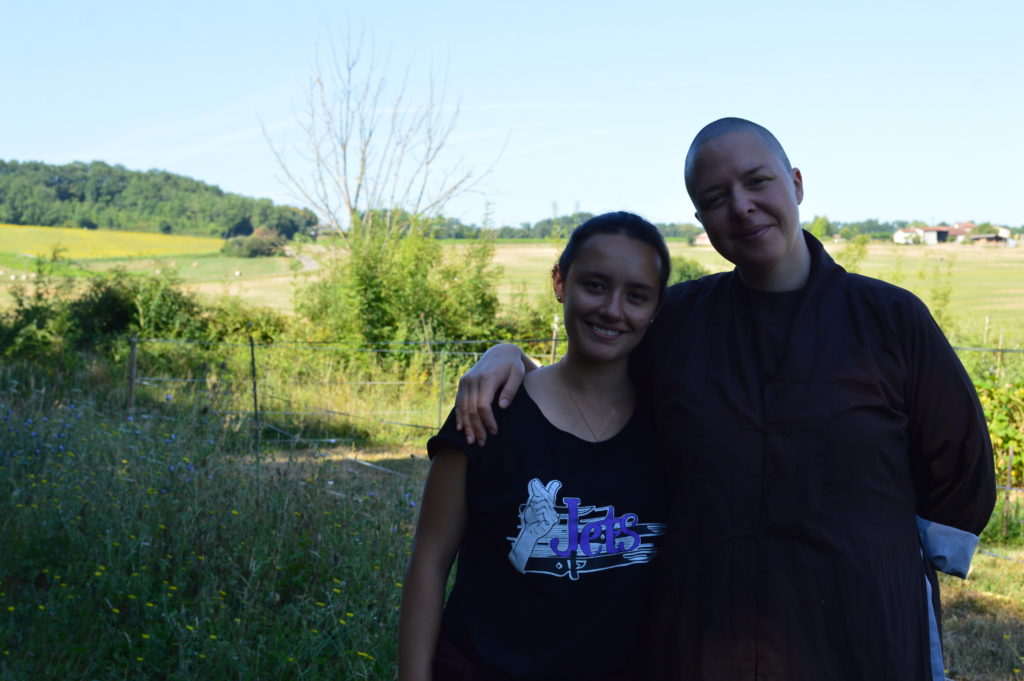
Q: Today’s the 4th of September 2018, and I’m sitting with Sister Chanh Niem in Lower. Thank you for being here. What was life like before you became a monastic?
Sister Chanh Niem: Thank you for asking me. I was working in England with young people who suffer from first episode psychosis, within a multi-disciplinary team in the National Health Service. Before that, I studied classical music: singing and composition.
Just before I came here, I had been traveling for two years in South America and the Caribbean. I enjoy adventure and felt the need to live life as fully as possible. I was in Brazil in this crazy wonderful city called Manaus, which is in the Amazon Rain Forest.
I didn’t have much money; I wasn’t sure which direction I was going in, and I remember reading Thay’s book Peace is Every Step. Wow! I felt so much better doing the simple practices. I walked the cracked, chaotic streets in the heat of the jungle, and practiced “breathing in, I relax my body; breathing out, I smile.” That was an experience, something quite concrete and new, and something simple but strong that really helped me at the moment I needed it. That was about six years ago.
Q: I understand you spent a year working in the Lower Hamlet office supporting the Sangha. Was there already a monastic aspiration before you came?
Sr. CN: I didn’t have any aspirations to be a monastic. I just wanted to come and practice.
My wish is to help others in a way that frees and empowers them.
I think what moved me the most was how life here reminded me of how I grew up in the countryside in Ireland. Taking your time, not hurrying, enjoying life. Growing up I spent a lot of time in nature, by the river, in fields, up trees. In a way, it felt like home or it felt like a home I had been looking for that I had lost. There was that nourishment in the way of being, in the way of being held by the community. It was also seeing how people live in community here doing their best to live in a peaceful, kind, compassionate way.
There was something in me that had been striving towards happiness, healing, love, goodness towards all those wonderful things for many, many years. When I came here, the practice met with that. It made sense; it fit like two rivers merging. It was real, and it helped me concretely to be more the person I wanted to be and to live in a way that made sense to me. I’m so grateful for that, and I cherish that. Then Thay came back from the tour in 2013, and I felt somehow deeply seen, understood and accepted in a way that perhaps I had never felt before. I ordained almost four years ago.
Q: Why did you become a monastic and not continue to live and practice in Plum Village as a layperson?
Sr. CN: Becoming a monastic was a big decision. What helped me to make that decision, and what still helps me when I face a tricky moment, is that I feel a sense of urgency about the situation we are in—with the environment and society—and want to devote all of my time and energy to helping affect positive change. I want to live a way that is a part of the solution.
Around 9,000-10,000 people come to Plum Village every year to practice. When they go home their joy, happiness and peace will affect their friends and their family. So it spreads out even further. I feel really happy to be part of that and to be a part of Engaged Buddhism in particular.
Also, I enjoy this way of life, this way of being. I enjoy it deeply, even though there’s suffering sometimes. The most wonderful thing is practicing and learning through the practice. I feel so grateful for the many ways in which it has helped me to become stronger and happier, how it has helped me to understand and let go and how to heal the relationships in my family and the relationship I have with myself.
I am also learning how to recognise and let go of more collective sufferings within myself: the loneliness, the sense of not belonging and worthlessness, and the destructiveness. Part of that is learning how to be happy, to value, and to sustain happiness. It’s an opportunity to know myself so well that I can choose freedom and happiness; my wish is to help others in a way that frees and empowers them, and that helps them to heal all the way through.
Q: You mentioned you studied music. I also know your singing and chanting from being in the Sangha. I’m wondering how singing can be a practice, and how has your own singing changed while you’ve been here?
Sr. CN: My voice has changed a lot. When I came here I realized I didn’t feel too good about my voice, and I didn’t enjoy singing anymore. I studied opera. It’s a very particular type of singing; it’s competitive. There are very high standards and there is quite a lot of pressure. Perhaps it was the competitiveness and the pressure to be perfect that led to no longer feeling good about my voice. In Plum Village, we sing simple songs over and over for fun to remind us about the practice. It‘s not about producing a perfect effect but about enjoying the experience, letting it flow, and getting to know my voice better.
Singing is a way of concentrating my mind and of going deeply into myself.
I used to feel a lot of tension and pain after singing high notes. Gradually, I learned to see what was happening in my throat and where it’s tense. I discovered how to allow it to relax. Now I’m producing high notes in a different way, much more free; the tone is different and I like it better.
I feel like my true voice has come out, and I can still use classical technique whenever I like. That happened slowly and naturally. By just being there, I enjoy and allow mindfulness, concentration, and insight to enrich the experience. When I can see more clearly what is happening, then I can make choices to go in a direction that is more healing or pleasant, more free, and more nourishing.
Singing is also a way I embrace strong or overwhelming emotions and sensations in the body. It’s very gentle. It’s something like an intermediary. The suffering is not being suppressed, but because I am doing something that requires my attention and my whole body, then that attention isn’t overwhelmed by the difficulty. The vibrations of the sound and of the bell, if I am chanting, also help to soften and relax tension and stress in the body. It’s like a kind friend who comes and can help to be there in a tender way in a moment that may be overwhelming.
Singing is a way of concentrating my mind and of going deeply into myself. It’s a way of feeling connected to others through that. I don’t know if I find the practice more nourishing or the singing more nourishing, but for me the two really cannot really be separated. I wouldn’t want to sing without practicing because I feel more fulfilled.
It helps me to go deeper into my practice: the present moment and my body. Because of the practice, instead of trying to create an emotional effect for an audience, I touch something deeper inside myself that comes out through the music. I can be myself totally. So there is no performance anymore—just the moment, the experience, and the freedom.
Interview conducted by Annica and transcribed by Diane F. Wyzga, “Radiant Freedom of the Heart”

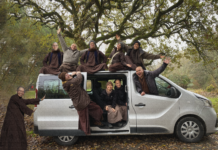

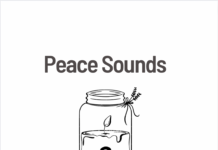


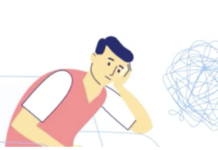
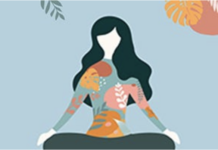

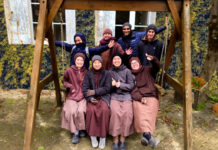
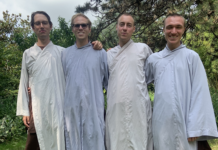








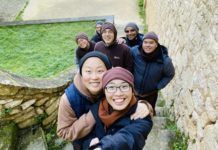
Lovely and inspiring….bless you Sr. and your wish to heartfully cascade your joy to all, it is pure and of sweet beauty, I feel it in my grounded state. We need more lay people also, who can traverse subtly and create a larger world and community in voice harmony….from calm mind to voice to body action….humility and steadiness is key here….coupled with deep wisdom, stealth and true, true altruism. Let’s all sing truthfully then and credibly respect our differences on all levels. Thank you again x
[…] tekst van deze ‘Geleide diepe ontspanning' is oorspronkelijk in het Engels: Sister Chanh Nghiem van Plum Village. Met […]
[…] text of this “Guided deep relaxation” is originally in English: Sister Chanh Nghiem of Plum Village† Thank […]
[…] tekst van deze ‘Simpele diepe ontspanningsoefening' is oorspronkelijk in het Engels: Sister Chanh Nghiem van Plum Village. Met dank.Het beeld is van Bloemenbureau Holland, onder hartelijke […]
[…] text of this ‘Simple Deep Relaxation Exercise’ is originally in English: Sister Chanh Nghiem of Plum Village† Thank you.The picture is from Flower Council of Holland, with a heartfelt thank […]
[…] tekst en uitvoering van deze totale ontspanning is oorspronkelijk in het Engels: Sister Chánh Niệm, Plum Village. Heel erg veel […]